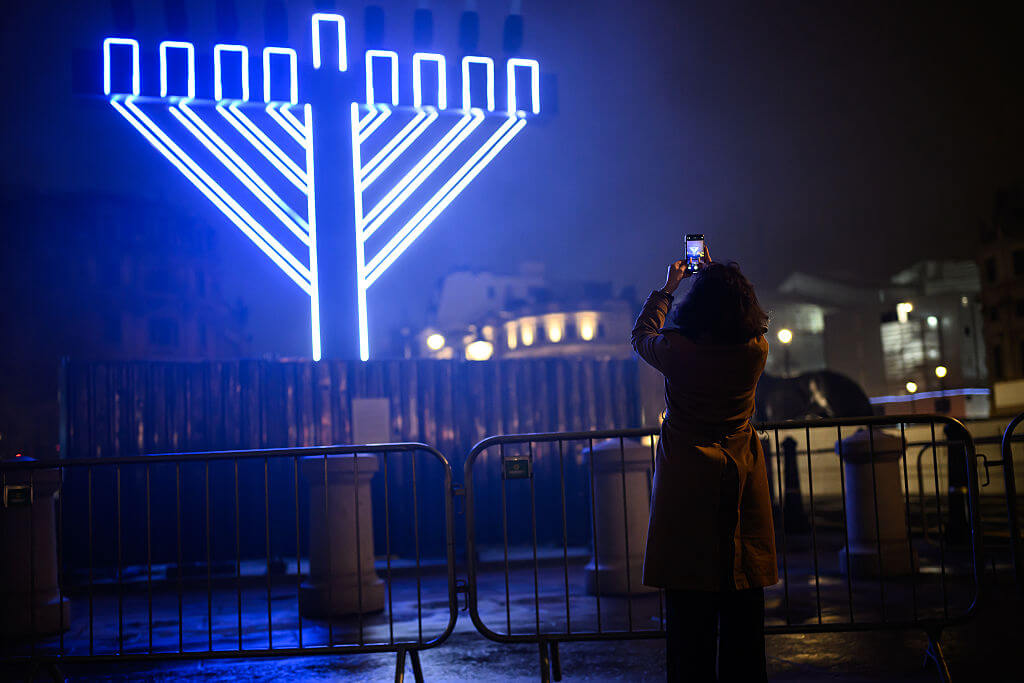Was Esther’s Cousin Mordechai An Ancient Refugee?

Graphic by Angelie Zaslavsky
We do not tend to think of Mordecai as a displaced person, but perhaps we should. His family, we are told, had been exiled from Jerusalem (Esther 2:6) by King Nebuchadnezzar of Babylon.
Mordecai himself embraces this placelessness. Out of home in the world, the man refuses to come indoors. King Achashverosh cavorts in lavish parties. Esther takes her position as the new queen. But Mordecai lurks in the city square, at the palace gates—even once donning sackcloth. Standing outside, what does Mordecai see? All the treachery invisible to those within. It is Mordecai who hears word of, and reports, a plot to murder the king. It is Mordecai who relays to Esther—comfortable within the palace—of Haman’s plot to murder the Jewish people. Outside, Mordecai can see the brutality that is cut off from others’ view.
Achashverosh is nothing like Mordecai. He is comfortable inside, where he lives. We meet him in his palace bacchanal. To speak with him, you must first enter his chamber. He rules over 127 countries; but he must ask his servants who is in the courtyard just outside. He does not know.
In the book of Esther, Achashverosh leaves his confines just twice—both to step into his palace garden. The first occasion is his lavish party for all the people of Shushan, young and old alike: the party is held in that garden. The wine flows from golden flasks, and he ends up ordering his wife executed. He steps into the world beyond, and turns it into a place of cruel drunkenness.
The second time is at Esther’s second party. Esther tells Achashverosh that Haman wishes to destroy her people. Achashverosh storms out in fury, into the garden. When he returns, he orders another execution: he decrees that Haman be hanged.
We speak of Purim as a festival of turnabouts. Perhaps this is one: that Achashverosh could finally, truly leave the party—and take up the cause of those outside his own world.
At the end of the Megillah, Mordecai calls for a new celebration. This will not to be a palace party, filled with endless wine. It will be a celebration of gift exchanges across the community, and of alms for the poor. It will be, in other words, Mordecai’s celebration.
That is the celebration we have achieved by the end of the book. This Purim, may we learn to live that celebration.
__Jewish history is one long story of seeking refuge. From Hitler’s Berlin to Soviet Moscow, from fundamentalist Teheran to chaos-ridden Addis-Ababa — read more of Jewish refugees’ stories here._

















